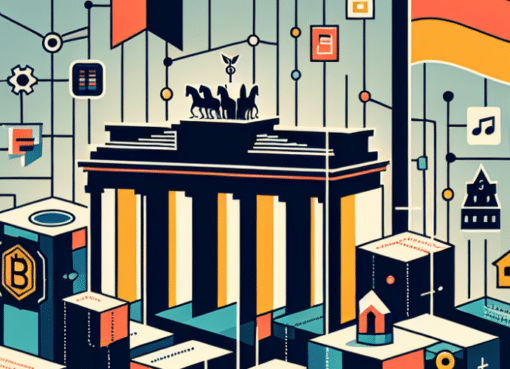In an age where digital transformation is inevitable, blockchain technology is set to radically change how we think about and participate in democratic processes. Recent developments in this field have shown promising potential for enhancing the security, transparency, and accessibility of online voting systems.
Blockchain, a decentralized ledger technology, is known for its key features, which include immutability and transparency, making it an ideal candidate to address many of the challenges currently faced by online voting systems. Traditional methods have often been criticized for their susceptibility to fraud, lack of transparency, and potential for coercion. However, the integration of blockchain could dramatically mitigate these issues, offering a more secure and transparent method of casting and recording votes.
One of the most notable recent advancements in this area is the successful pilot project conducted during the municipal elections in a mid-sized U.S. city. The project, which was a collaboration between the city council and a leading blockchain technology firm, allowed citizens to cast their votes online in a secure and anonymous manner. The blockchain-based system ensured that each vote was encrypted and recorded on a public ledger, accessible for verification but not modifiable, effectively preventing any tampering or fraud.
The pilot project received overwhelmingly positive feedback, with participants praising the system’s ease of use and enhanced security features. The success of this pilot is a significant step forward in the movement toward wider adoption of blockchain in voting systems across the country.
Experts believe that the adoption of blockchain technology in voting systems could lead to higher voter turnout, particularly among groups that have traditionally shown lower participation rates, such as the youth and non-residents. By simplifying the voting process and making it more accessible through digital means, blockchain has the potential to engage a broader spectrum of the population in the democratic process.
Moreover, blockchain’s capability to provide a transparent audit trail and ensure the integrity of each vote addresses another major concern in traditional voting systems: voter trust. With increased visibility into the voting process and the assurance that votes are counted as cast, blockchain could significantly restore and boost public confidence in electoral systems.
However, while the benefits are clear, the widespread implementation of blockchain-based voting systems is not without challenges. Concerns regarding digital literacy, technological accessibility, and regulatory compliance need to be addressed to ensure that the technology can be beneficial and accessible to all citizens.
Government bodies and technology providers must also work closely to establish clear standards and regulations for the use of blockchain in voting, ensuring that the technology is used responsibly and ethically. This includes ensuring the privacy of voters’ identities and safeguarding the system against potential cyber threats.
The successful pilot project is just the beginning, with several other cities and even some states considering similar trials. If these projects continue to show positive results, it could pave the way for a significant overhaul of how votes are cast and counted in future elections.
As blockchain technology continues to evolve, its potential applications within our society grow ever more promising. With its ability to provide secure, transparent, and accessible solutions, blockchain is poised to have a profound impact on our democratic processes, potentially changing the landscape of how democracy functions in the digital age.
In conclusion, the integration of blockchain technology into online voting systems represents a groundbreaking development in the quest for more secure and transparent democratic processes. As this technology continues to be tested and refined, it may soon become a standard component of electoral systems worldwide, marking a significant milestone in the evolution of democracy.




